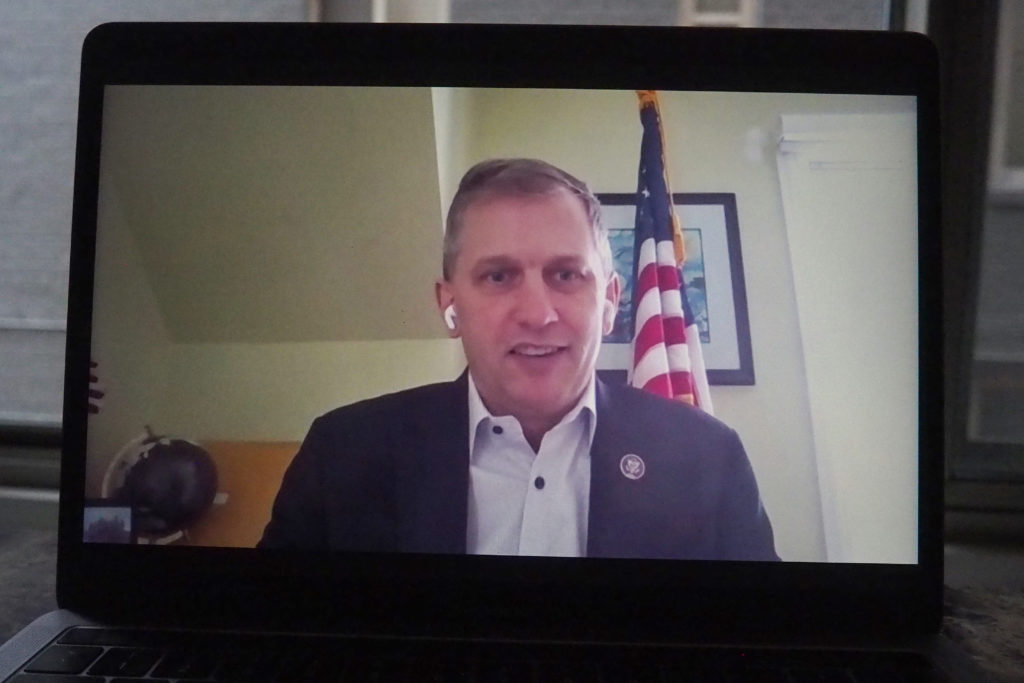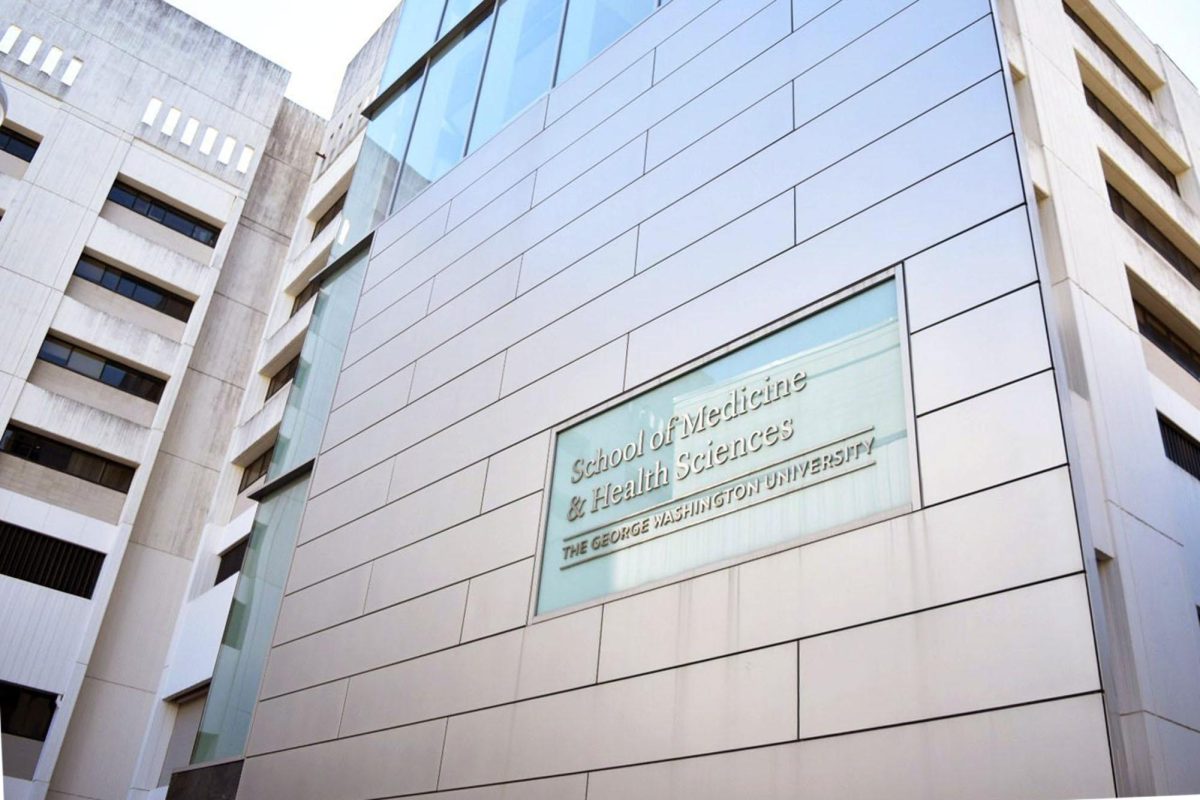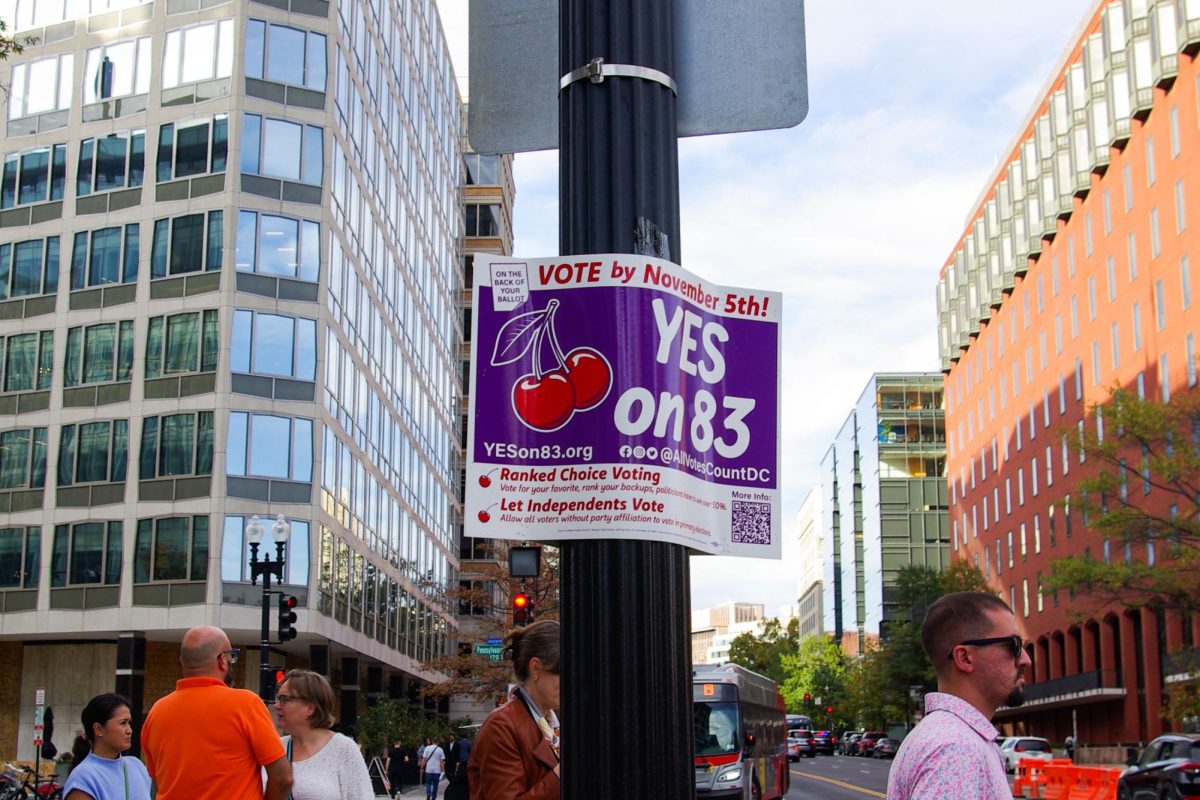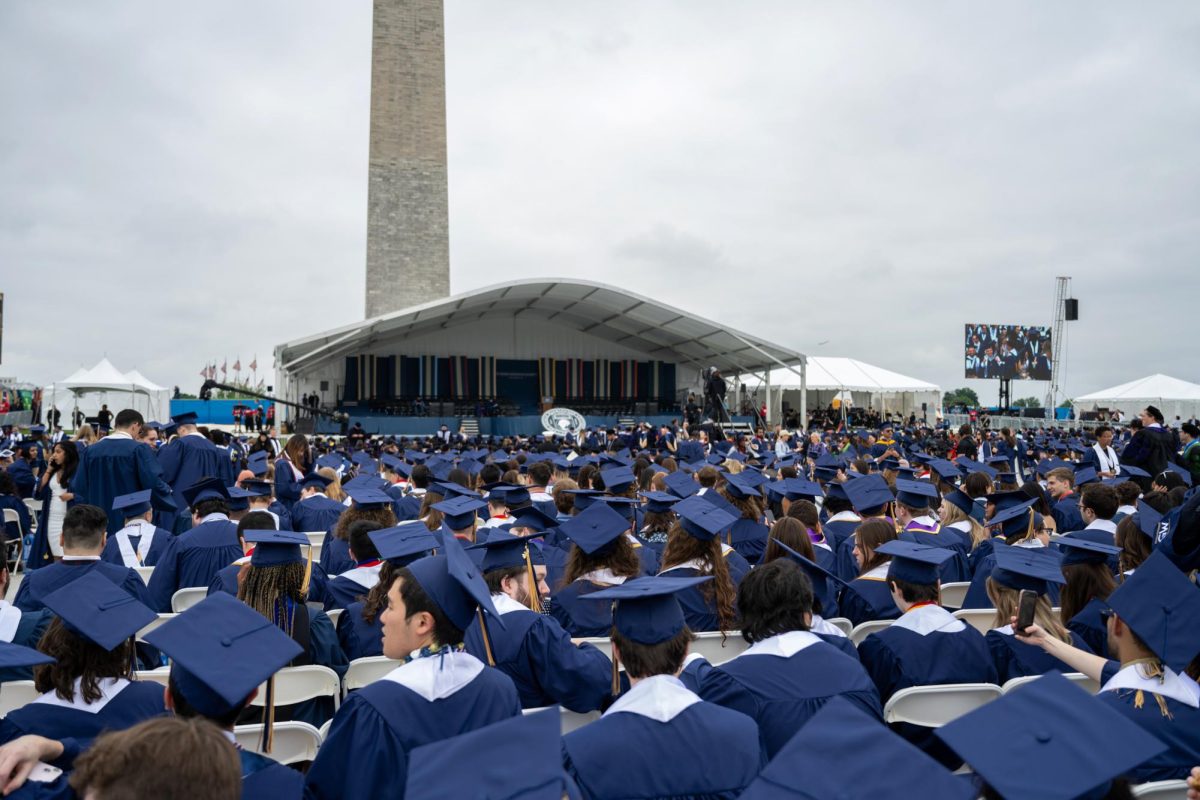Officials said they hope the GW’s sustainability summit brought awareness to the community about the need to address climate issues amid the COVID-19 pandemic.
The summit was initially slated to be held in April to coincide with the 50th anniversary of Earth Day, but officials decided to postpone the event as COVID-19 broke out across the District. University President Thomas LeBlanc said he hopes the summit helped to direct attendees’ attention to sustainability at a time when most students are focused on the pressing issue of the pandemic.
“GW, through our students, our faculty, staff and administrative actions, we’ve been doing a lot with sustainability over the years, and the sustainability summit is just one of many activities,” LeBlanc said. “But like many similar activities in the pandemic, in order to be safe, we had to do it virtually. We had to do it differently.”
Meghan Chapple, the director of the Office of Sustainability, said officials chose speakers and topics for the summit based on what could add most value to the ongoing conversation about sustainability within the GW community.
“The intent of the summit was to help build community around sustainability at GW and also to provide a space to talk about these longer-term issues,” she said.
During the summit, Rep. Sean Casten, D-Ill., discussed the potential climate legislation Congress can pursue alongside President Joe Biden’s administration in a keynote interview led by Frank Sesno, the director of strategic initiatives at the School of Media and Public Affairs and the school’s former director.
Casten said the presence of the filibuster in the U.S. Senate creates a barrier to “structural changes,” like eliminating subsidies that support “dirty energy,” like coal-fired power plants. He said he’s hoping to address sustainable infrastructure in the U.S. House of Representatives once the COVID-19 relief package is passed.
“I think once we’re through the current COVID stimulus, we’re going to have a second bite at the apple on infrastructure,” Casten said. “On infrastructure, that means we can have a conversation about what would it mean to actually build an infrastructure of tomorrow.”
Casten said he hopes to push through legislation that eliminates tax breaks for fossil fuel industries and implements tax incentives for those who purchase energy-efficient vehicles. He said he believes clean energy can be achieved through the regulatory structures of the Federal Energy Regulatory Commission, a federal agency responsible for the transmission of electricity and natural gas through interstate commerce.
Casten introduced a bill last term that would provide the agency with the authority to implement carbon pricing, a cost applied to carbon polluters, as an economic incentive for cleaner generators. He added that carbon pricing can answer to a collapsing price of energy that has decreased incentives to find new ways to produce energy.
“I think it’s a way you could essentially backdoor into carbon pricing through existing regulatory structures and really just in the name of keeping the lights, again recognizing there’s this win-win,” he said.
He said he appreciates the actions taken by institutions like GW to make efforts toward sustainability that cannot be achieved by the average person.
“I think what the institutions are doing is great,” he said. “What I’d like the institutions to do now is come together and say, ‘We need to be aggregate voices for coming up with a carbon accounting system so that we know that the commitments we’re making are actually robust and legit and two plus two adds up to four.’”
Abrigail Williams, Lia DeGroot and Vita Fellig contributed reporting.








